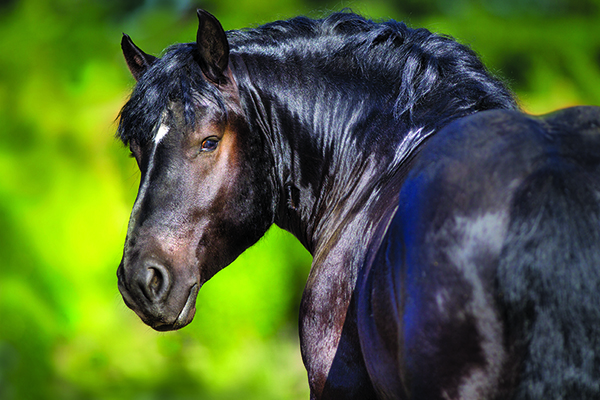October 2019 SmartPak SmartTip of the Month: Keeping Your Horse at a Healthy Weight


Thumbs up: Knowing your horse’s body condition score for a healthy weight
It’s hard to resist the urge to squeal over how adorable a chubby pony is. But unfortunately, overweight horses and ponies aren’t cute—they’re unhealthy. Being too thin also comes with risks and health concerns. But who decides whether a horse is too fat, too thin, or just right? You do, thanks to the Henneke Body Condition Scoring Scale! Developed by Dr. Don Henneke and universally used by veterinarians, nutritionists, and other equine health professionals, the scale provides a standard scoring system for horse owners and professionals to use when evaluating a horse’s fat cover to determine if they are at a healthy weight. The scale ranges from “1,” which is the thinnest, to “9,” which is the fattest, making “5” the ideal score for most breeds and disciplines. To learn how to use the Henneke Horse Body Condition Scoring System with your horse, check out this how-to video from SmartPak: https://www.youtube.com/watch?v=LY3yVC4l8K4.
Thumbs down: Not monitoring your horse’s weight this season
Because some horses tend to drop weight or gain weight over the winter, it’s important to stay on top of your horse’s condition by evaluating his body condition score on a regular basis. To make sure you have an accurate picture of your horse’s weight, be sure to remove his blanket and work your fingers through his coat to feel his body condition. By regularly assessing your horse’s body condition, you’ll be able to notice changes right off the bat. Then you can implement diet and management changes to help your horse get back on track.
Recent Posts
2025 Defender Kentucky Three-Day Event: Dressage Day One
Day one of the 2025 Defender Kentucky Three-Day Event CCI5*-L kicked off today at the Kentucky Horse Park in picturesque…
2025 Defender Kentucky Three-Day Event
Stay up to date on the action from the 2025 Defender Kentucky Three-Day Event. Find information about the event, including…
ASPCA Right Horse Adoptable Horse of the Week: Stella
Welcome to Horse Illustrated’s weekly installment of the Right Horse Adoptable Horse of the Week, offered in partnership with the…
Meet the Founders of Redingote
I’ve known Connie DeMaio and Allison Malenfant, the two co-founders behind Redingote equestrian coveralls, for years. In fact, I was…
How We Speak to Animals
Emotions play a crucial role in social species, helping regulate interactions. In animals, emotions can be assessed based on physiological,…
Therapy Horses: Equine Miracle Workers
Without therapy horses, there would be no equine-assisted activities for helping humans. They’ve been referred to as “angels with four…